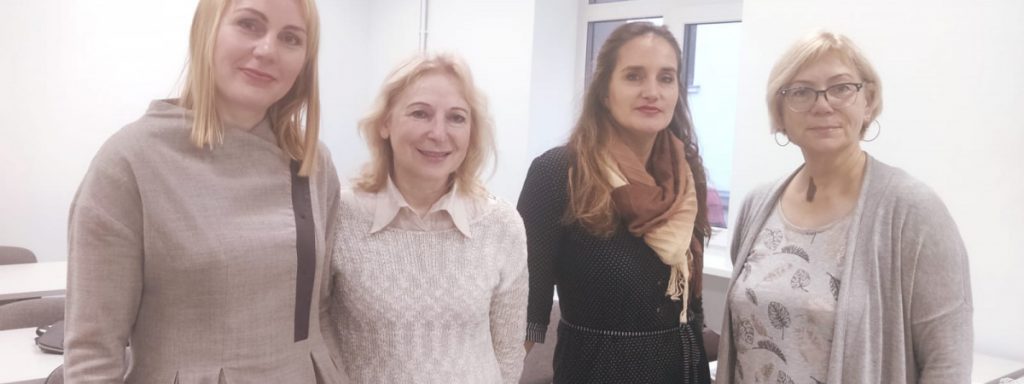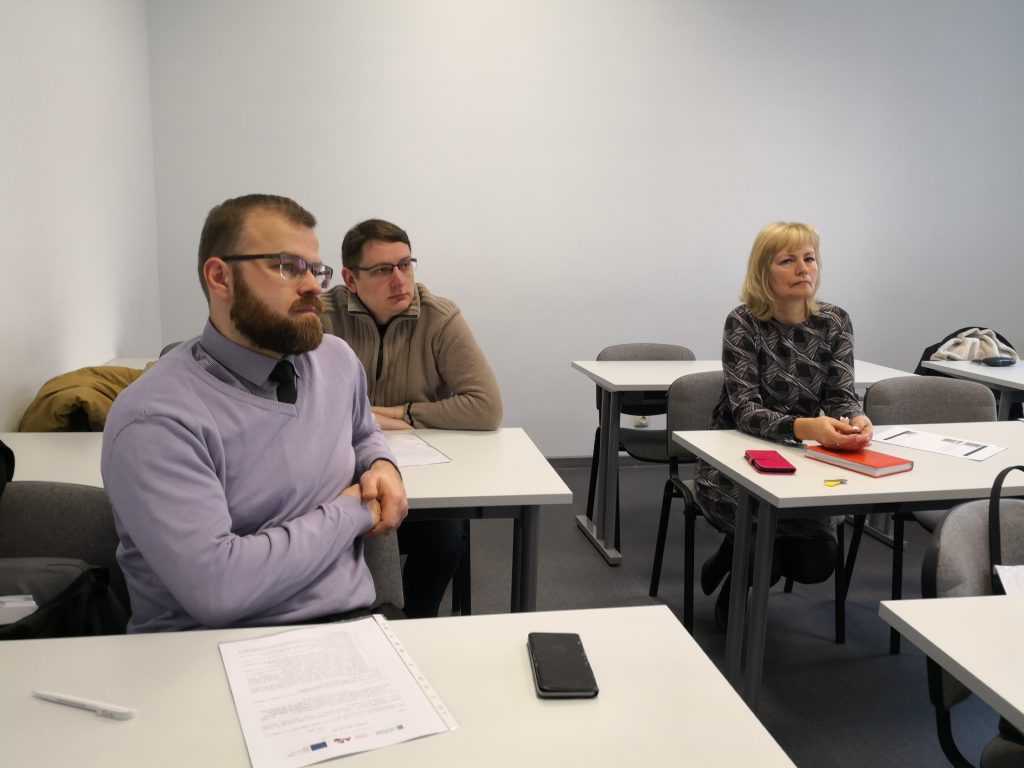
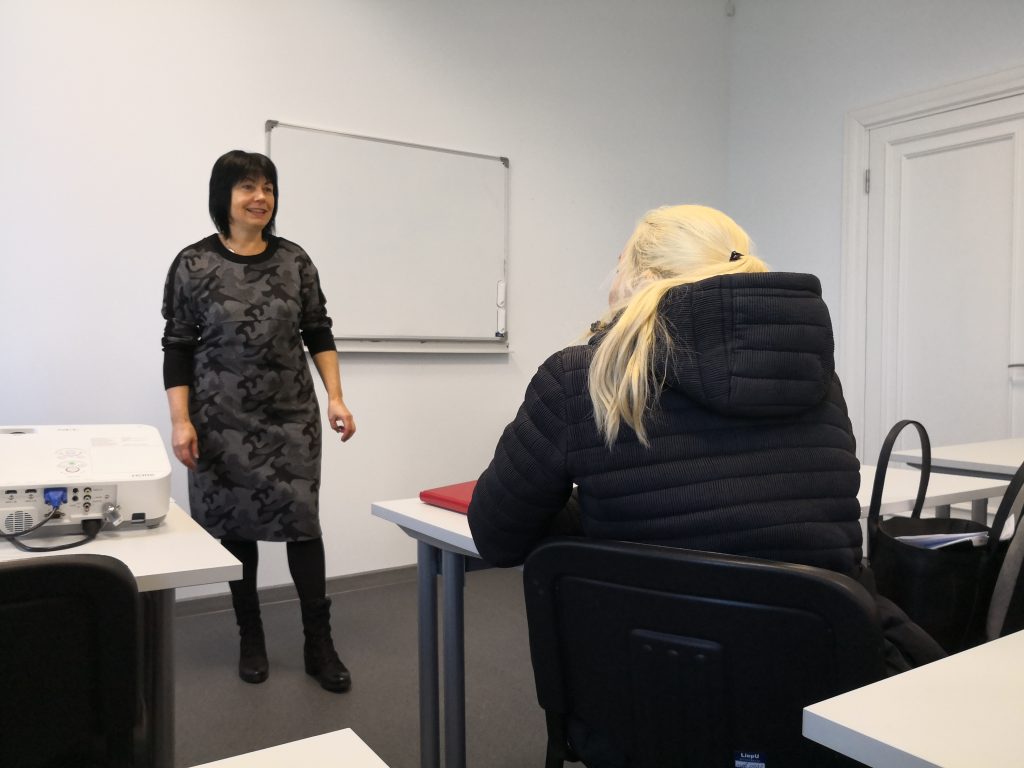
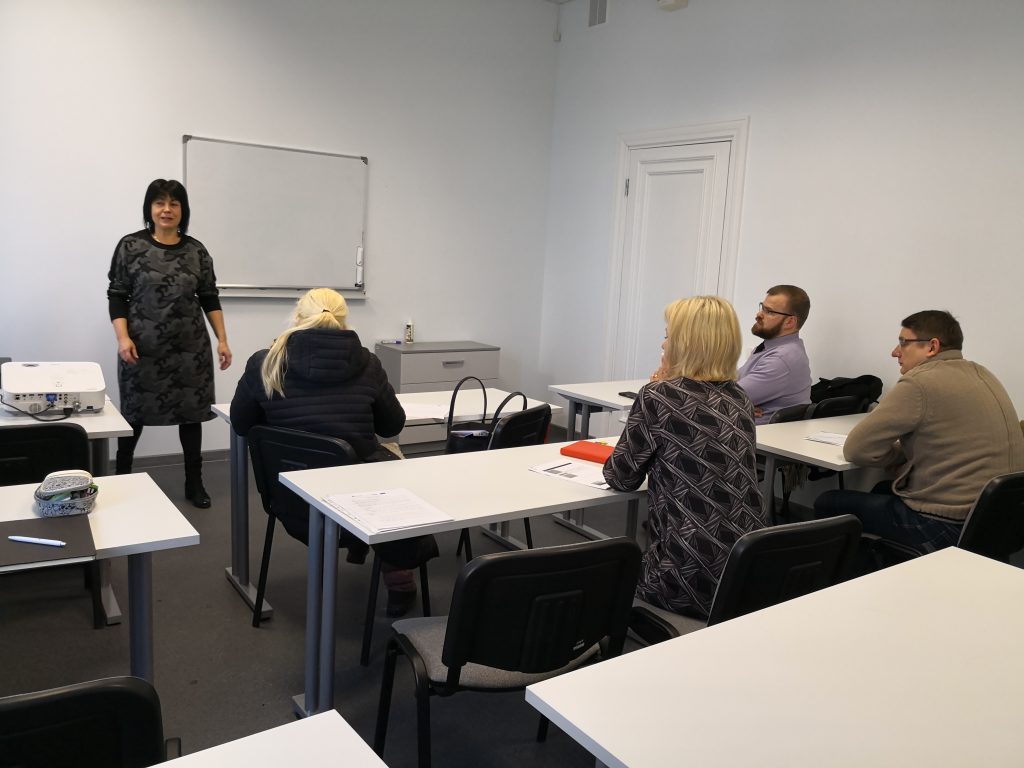
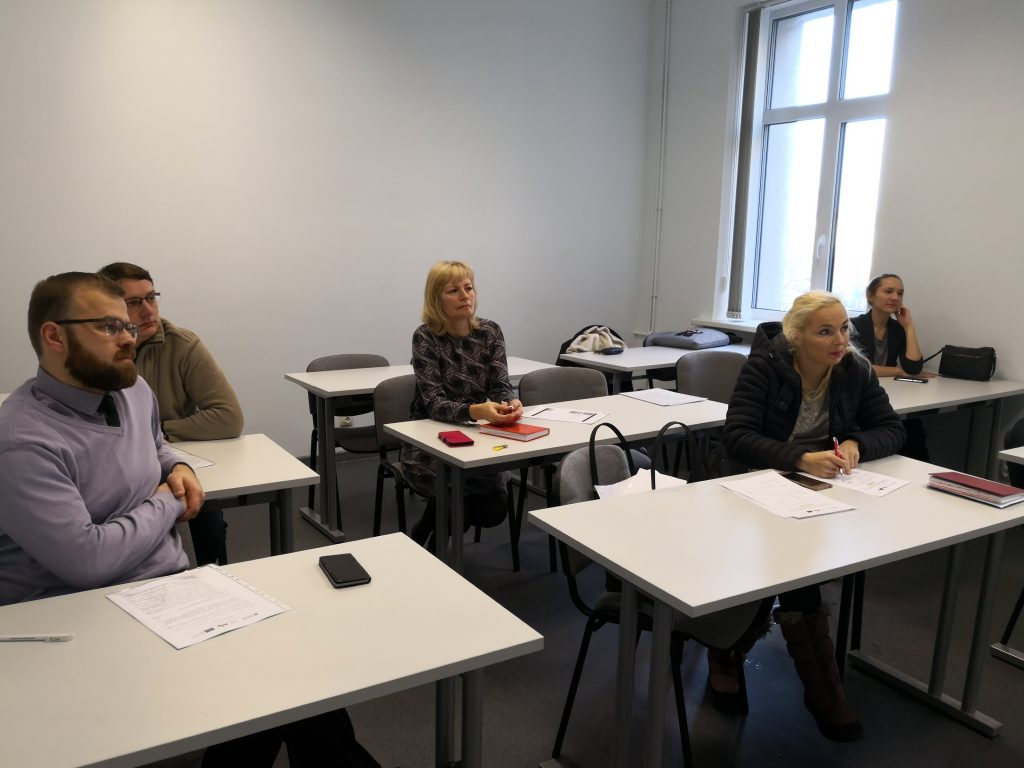




Radka Nacheva from Varna University of Economics in Bulgaria has been working as a guest lecturer at the Liepaja University in the field of strategic specialization – “Information Technologies” for almost a year and has recently completed several scientific publications on e-learning during the pandemic. Radka Nacheva is one of seven guest lecturers who is actively involved in the European Social Fund project “Improvement of the academic staff of Liepaja University in the fields of strategic specialization – natural sciences, mathematics and information technologies, art, social sciences, business and law” (No. 8.2.2.0/ 18 / A / 021) in order to strengthen the quality of the study direction “Information Technologies, Computer Engineering, Electronics, Telecommunications, Computer Control and Computer Science” by providing its professional contribution to academic and scientific research activities.
Regarding scientific publications, the guest lecturer explains:
“In the first months of experiencing social distance, teachers and students faced the challenge of communicating virtually. Traditional teaching methods were transformed into digital ones, which put both sides out of their comfort zones, and the learning process was conducted in a completely digital environment, which had to be organized in such a way that all students had access to the available materials. Thus, the aim of the research was to study the experience gained in e-learning at Varna University of Economics and the Liepaja University in the lockdown.”
Thus, Radka Nacheva together with Anita Jansone, Dean of the Faculty of Natural and Engineering Sciences of LiepU, have developed a practical e-learning framework. As part of their study, computer science students were also interviewed to examine the challenges they face in the first months of the lockdown. Based on the survey, the researchers concluded that e-learning at both universities was successful. Radka Nacheva emphasizes:
“Students appreciate the opportunities provided by their teachers to acquire teaching materials in various activities, namely, publishing lectures and assignments, additional literature, video lectures and providing synchronous communication. But on the other hand, respondents also referred to the negative consequences of this type of learning. For example, spending too many hours at the computer, lack of real communication with teachers and other students in the study group, problems with internet connection, power outages in emergencies, poor technical equipment (some of which do not have adequate technology for more extensive video conferencing and software for special tasks) .”
Currently, the guest lecturer plans to continue scientific research work related to the impact of social media on higher education.
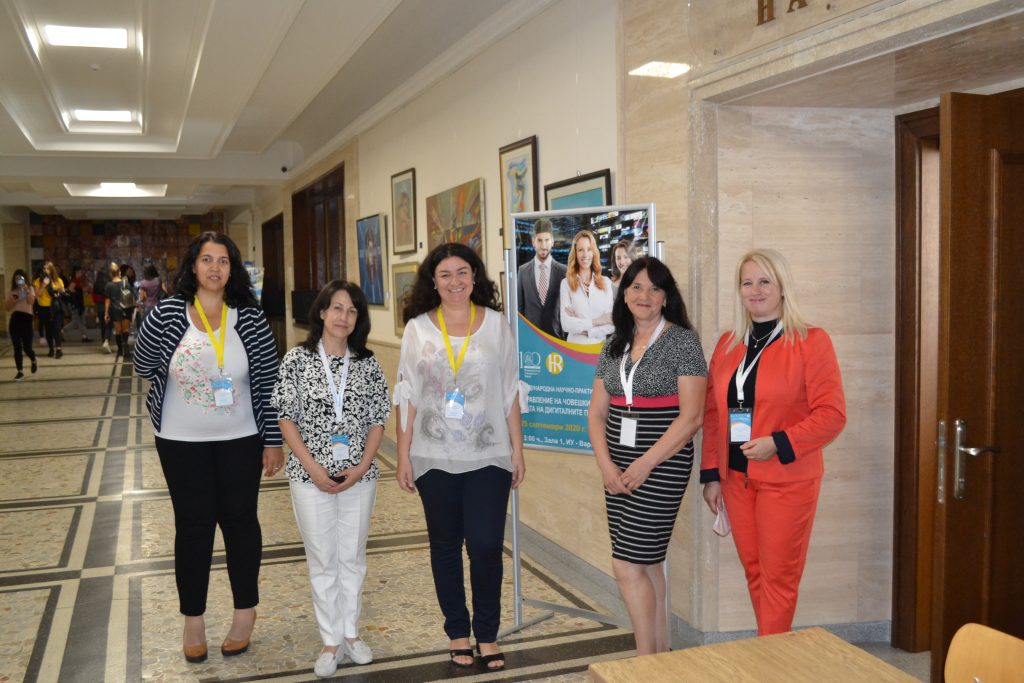
Within the European Social Fund project “Perfection of the Academic Staff of Liepaja University in the Areas of Strategic Specialization – Natural Sciences, Mathematics and Information Technologies, Art, Social Sciences, Commerce and Law” (No 8.2.2.0/18/A/021) the employed guest lecturer Radka Nachevafrom University of Economics – Varna in Bulgaria is currently giving lectures remotelyin the strategic specialization field – “Information Technology, Computer Technology Electronics, Telecommunications, Computer Control and Computer Science”. There has been made a very good and productive cooperation with LiepU Faculty of Science and Engineering (FSE). In the framework of this project the guest lecturer is actively developing study courses and conducting scientific research, by managing to participate already in two international conferences in a short time.
Now Radka Nacheva is giving lectures to foreign students of the professional master study programme “Information Technology” in the study course “Business process modelling” (in the amount of 1 ECTS). Speaking about the lecture conducting remotely, the guest lecturer tells that the first lectures have passed well. „We were talking with students about software, they made a short video about it, and it is planned to acquire business process modelling and to use the Visual Paradigm software till the end of this semester. The biggest challenge I face by teaching remotely is to develop a system of study control for students, where will be combined practical tests with short theoretical tests and the practical project.”
In the scientific research the guest lecturer has made a lot of work. She jointly developed a report with LiepU FSE dean Anita Jansone, which was presented in the 4th international conference “Innovations and Creativity” organized by Liepaja University held from 4th until 6th June in Liepaja, and on 25th September she was participating also with a jointly elaborated report in the international conference “Human Resource Management in the Age of Digital Challenges” in the University of Economics – Varna in Bulgaria. It was a comparative research about problems regarding distance studies in LiepU FSE and in the Faculty of Computer Science of the University of Economics – Varna. Radka Nacheva admits: „I really hope that this report from LiepU organized conference will be published in the electronic journal „Baltic Journal of Modern Computing” (BJMC) and the second report – in the proceedings of the Human Resource Management conference.
At the moment the guest lecturer is developing the study materials for the study course “Operation systems” about the Object-oriented modelling, as well as the materials for the study course “Business process modelling”.
Radka Nacheva admits: „I hope that in this study year LiepU students will work just as seriously as before, so that we could collaborate well together, to learn a new software and its control, to acquire another software and to carry out some useful projects. The previous semester advanced very well. I collaborated very well with Latvian students, they were very motivated and interested in acquiring new things. We carried out a few projects about object-oriented modelling languages, for example, the UML, and they done their tasks very well. Also in the study process I had a very good collaboration with international students from India, France and Ukraine. I really hope that I could return to Liepaja as soon as possible, as I really like Liepaja – it is so calm and peaceful city, very different from Varna in Bulgaria.”
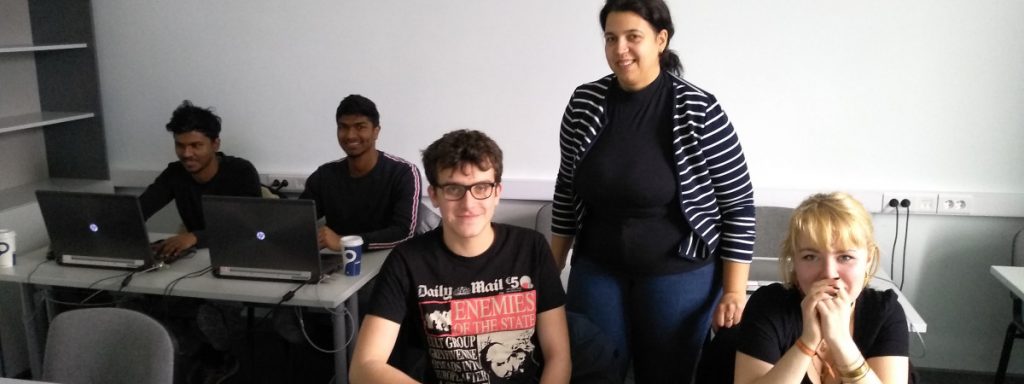
Within the European Social Fund project “Perfection of the Academic Staff of Liepaja University in the Areas of Strategic Specialization – Natural Sciences, Mathematics and Information Technologies, Art, Social Sciences, Commerce and Law” (No 8.2.2.0/18/A/021) Remigijus Kinderis (Remigijus Kinderis) from Klaipeda State University of Applied Sciences (KVK) has finished his work as a guest lecturer at Liepaja University (LiepU), where he was working in the study direction “Entrepreneurship, Administration and Real Estate Management” since November, 2018. The guest lecturer has been giving lectures at LiepU for one year and a half to Bachelor students of the study programme “Tourism and Recreation Management”, has been participating in the development of a collective scientific monograph between LiepU and KVK and has been also developing international cooperation between institutions of Latvia and Lithuania.
The guest lecturer explains that the idea of initiating a collective scientific monograph “Business management insights and transformation process” (“Ieskats un transformācijas process biznesa vadībā: sociālie, ekonomiskie un kultūras aspekti”) gave one of his taught LiepU study courses “International Tourism Economy and Globalization”. The collective monograph is the result of years of work by scientists from Lithuania, Sweden, Croatia, Russia, Belarus, Romania and other countries. The monograph contains from a wide range of insights and issues, but it also requires practical solutions by combining the efforts of management, finance, risk management, human resource management, big data, business and government. A separate section of the monograph focuses on regional aspects (Europe, Africa, and Asia) and different business sections (tourism, food service, fashion retailers), and its management insights and transformation process. A lot of attention is paid to barriers in the transformation of business management, innovation development, risk management, local community policies, sustainable development in the regions and others.
By taking part in this project on the perfection of the academic staff of Liepaja University, R. Kinderis admits: “I am grateful for the opportunity to work at Liepaja University and I hope that the fruitful cooperation will continue.”
On June 25, in the framework of the European Social fund project “Perfection of the Academic Staff of Liepaja University in the Areas of Strategic Specialization – Natural Sciences, Mathematics and Information Technologies, Art, Social Sciences, Commerce and Law” (No 8.2.2.0/18/A/021) was held a meeting, in which from Liepaja University (LiepU) side participated the rector Dace Markus, the project’s management group, lecturers from the Faculty of Engineering and Science, and from Klaipeda University (KU) participated three guest professors: Asoc. Prof. Tatjana Paulauskiene, Asoc. Prof. Rasa Viederyte and Prof. Olga Anne.
In the study direction “Environmental Protection” of the strategic specialization field “Natural sciences” the guest professors together with the director of the Master’s study programme “Ecotechnologies” Lilita Ābele and the industry experts have developed new study courses in LiepU professional Master’s study programme “Ecotechnologies”, which have been taught to students since autumn and spring semester of the study year 2019/2020. Similarly, the guest professors have also successfully carried out the scientific research work by taking part in various international conferences in LiepU and Gdansk. During this meeting they discussed the achieved results in the project, future goals and plan for the future collaboration between both universities (possibilities for joint projects and publications, double diploma programme, etc.).
The guest professor Rasa Viederyte admits: “The lectures in English attract more special attention to students, and students are very active in these studies.”
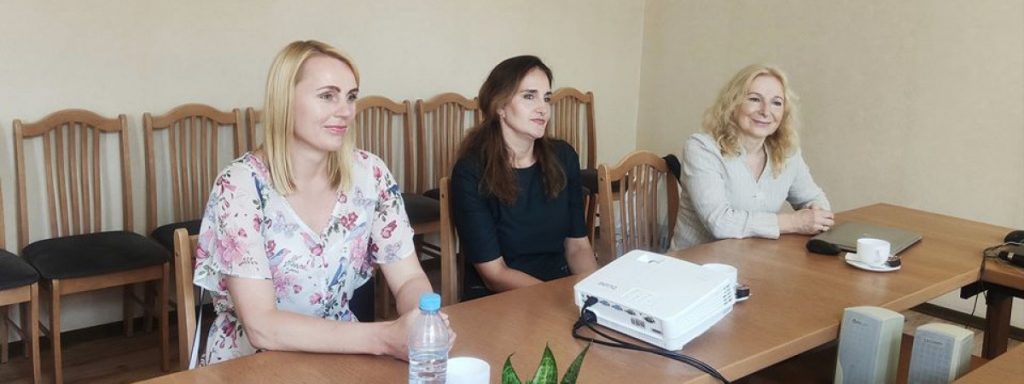

Gyotaku, which literally translates into “fish” (gyo) and “rubbing” (taku), is an art that produces imprints of fish through the method of rubbing. Gyotaku – the traditional Japanese art of fish printing is not only an art form but a way of documenting in detail the fish caught by fishermen. It was used as a way to brag their “trophy catches” of any large or unusual fish, so that other fishermen could see the proof of it to believe it. Among the tools necessary to catch fish, Japanese fishermen often had paint and rice paper in their boat, so that freshly caught fish could be documented on paper, then washed and released or eaten. Over time this traditional technique evolved into a genre of scientific illustration and a modern art form.
Project manager, Lithuanian guest lecturer Petras Saulėnas mentions: “I think this project of Gyotaku printmaking together with students of Liepaja University will focus more attention on local marine tradition and its contemporary challenges – the students document the fish that were caught in the Baltic sea and bought at the local market. Gyotaku artist Naoki Hayashi believes that true Gyotaku can be made only with the fish that is caught by yourself, then printed and later eaten. This is a more sustainable and conscious way to live and create art with minimal waste. In contrast with large scale commercial fishing and sea pollution such as meditative art forms invite us to slow down and rethink our relationships with the sea.”
Traditional Japanese Gyotaku is finished with an artist‘s signature in the form of a seal or stamp, but the seal in the form of Liepaja coat of arms emphasizes the city of Liepaja and its history. By using the same hanko seals the students are unified and send a strong message together. Works were made by the 1st year students of the LiepU study programme “Design”.
Petras Saulėnas summarizes: “We managed to print the Gyotaku before the pandemic, but unfortunately the project must wait until it will be safe to exhibit publicly. Therefore I decided to photograph and “frame” works digitally, making them look close to what they would look like in an exhibition. And now that the closed borders are keeping us home, we can use this opportunity to appreciate our local nature and think about how we can bring positive change in the future. With this project we want to help raise awareness and invite to look more closely at the environment that surrounds us, because the best good deeds may be the simplest ones that require cleaning up the ground under our feet.”
The guest lecturer activities are supported by the European Social Fund project “Perfection of the Academic Staff of Liepaja University in the Areas of Strategic Specialization – Natural Sciences, Mathematics and Information Technologies, Art, Social Sciences, Commerce and Law” (No 8.2.2.0/18/A/021).
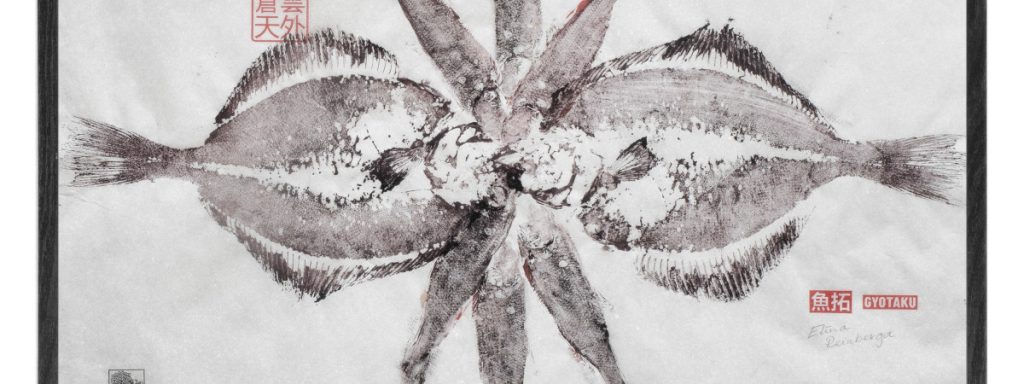
From 1st February of this year a new guest lecturer Radka Nacheva from Varna University of Economics in Bulgaria has started to work in the faculty of Science and Engineering of Liepaja University. The guest lecturer will develop study courses and will give lectures in strategic specialization field – “Information Technology, Computer Technology Electronics, Telecommunications, Computer Control and Computer Science ” in the framework of ESF funding project “Perfection of the Academic Staff of Liepaja University in the Areas of Strategic Specialization – Natural Sciences, Mathematics and Information Technologies, Art, Social Sciences, Commerce and Law” (No 8.2.2.0/18/A/021).
The engineering students of Bachelor and Master study programmes will have a chance to listen her lectures in the professional Bachelor study programme “Information Technologies” and academic Bachelor study programme “Computer Science”, where R. Nacheva will teach the study course “Operating systems” (in the amount of 3 ECTS), in the professional Bachelor study programme “Information Technologies” will teach the study course “Object-Oriented Modelling” (in the amount of 1,5 ECTS) and in the professional Master study programme “Information Technologies”, where she will teach the study course “Business Process Modelling” (in the amount of 1,5 ECTS). R. Nacheva admits that she is very glad about this opportunity to work and obtain experience in Liepaja University.
Starting from 2018 Radka Nacheva has being working in Varna University of Economics for the Chief Assistant professor, has obtained the Phd degree in Informatics and has published several scientific publications. The guest lecturer will be doing the scientific research work and it is planned that the guest lecturer will be working in this project until 31st July 2021.
The aim of the project is to perfect and strengthen the professional competence of Liepaja University academic staff, to promote the renewal and involvement of doctoral students and foreign academic staff in academic work and scientific research in the areas of strategic specialization, in order to ensure qualitative, internationally competitive and research based higher education, as well as promoting commercialization of knowledge by improving the cooperation with entrepreneurs of the industry.
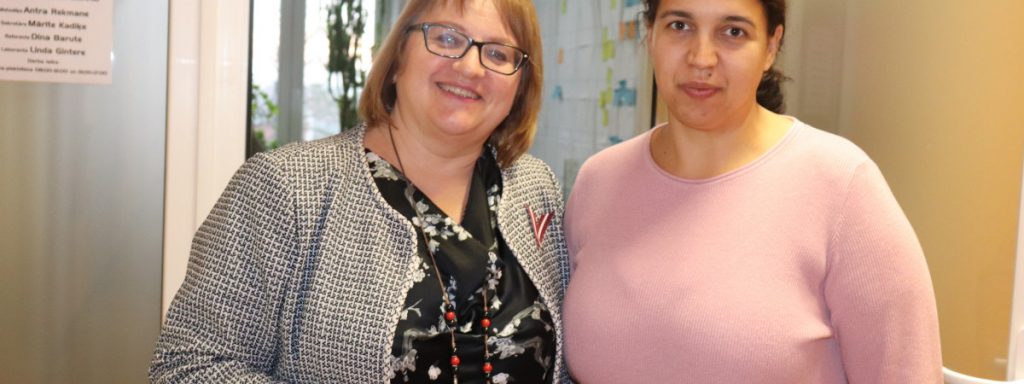
Lithuanian guest lecturer of Liepaja University Petras Saulėnashas recently returned from international European art project called “Matera European Photography / Visions from Europe” in Italy, Matera city. It is an event that unites the iconographical knowledge and distribution of places, the original and contemporary visions of Matera and Basilicata. (https://www.materaeuropeanphotography.org/visions_from_europe)
Twenty-eight students arrived in Matera city together with their professors from the most important Photography schools in Europe with an aim to carry out a research through means of photography. Each student made his own choice together with one professor, this way creating his own original and unpublished project. Besides, there was a moment of conversation and confrontation between the participants that was interesting also for the public, including organizations in the city such as schools and universities. In the end the concluded project and released work represent the creative contribution of authors, students and professors and their visual and expressive interpretation of the examined place. All the works produced are exhibited in several parts of the city of Matera and therefore given to the Comune di Matera.
P. Saulėnas admits that “by participating in art project “Matera European Photography / Visions from Europe” we can have a better quality in photography, better links and contacts, which is important for being a photographer, and this is also an interesting artistic experience for students, who study photo art. The guest lecturer admits that invitation to take part in this art project is a big honour”.
P. Saulėnasis an artist, specializing in the field of photography, a member of the Board of the Lithuanian Photographers’ Association and the Lithuanian Analog Photography Association, a graduate of MA degree in Media Art (Vilnius Academy of Arts). P. Saulenas is the founder of one of the photography study programmes in Lithuania, an associate professor, the founder and the curator of Bright & Showy gallery. His field of artistic research involves the analysis of photography phenomenon in the era of constant value shift with an emphasis on the re-evaluation of contemporary art context.
The guest lecturer started to work in Liepaja University from February, 2019, in the ESF funding project “Perfection of the Academic Staff of Liepaja University in the Areas of Strategic Specialization – Natural Sciences, Mathematics and Information Technologies, Art, Social Sciences, Commerce and Law” (No 8.2.2.0/18/A/021), in the area of strategic specialization – Arts.
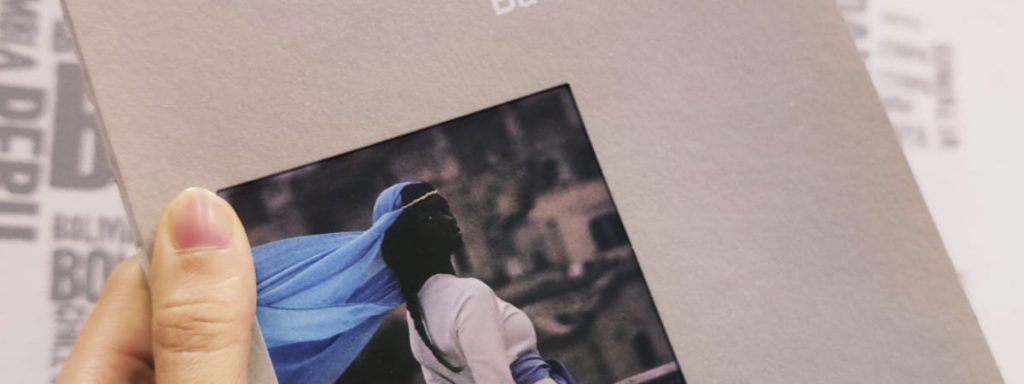
In the project “Perfection of the Academic Staff of Liepaja University in the Areas of Strategic Specialization – Natural Sciences, Mathematics and Information Technologies, Art, Social Sciences, Commerce and Law” (No 8.2.2.0/18/A/021) the guest professor Olga Anne from Klaipeda University (Lithuania) has started to give lectures to Master study programme students of Liepaja University (LiepU) in the strategic specialization field – “Natural Sciences” and the guest professor has been working as a researcher already for half a year in this area at LiepU.
Currently the guest professor is giving lectures to 1st year students of the professional Master study programme “Ecotechnologies” in the study course “Economic Activities Environmental Impact Assessment” (3 ECTS). This course has been implemented for half a year, involving specialists from environmental field, including the study programme’s director of Master study programme “Ecotechnologies” Lilita Ābele. Moreover, the guest professor has been on a study excursion to Klaipeda city with students, introducing them with different Klaipeda enterprises and their work in this field.
The guest professor’s teaching activities at LiepU are planned for one more year. The guest lecturer together with two guest lecturers Tatjana Paulauskiene and Rasa Viederyte from the study direction “Environmental protection” have already published together scientific research results in the collection of papers of scientific conferences during this project and will continue to do the academic and scientific research work.
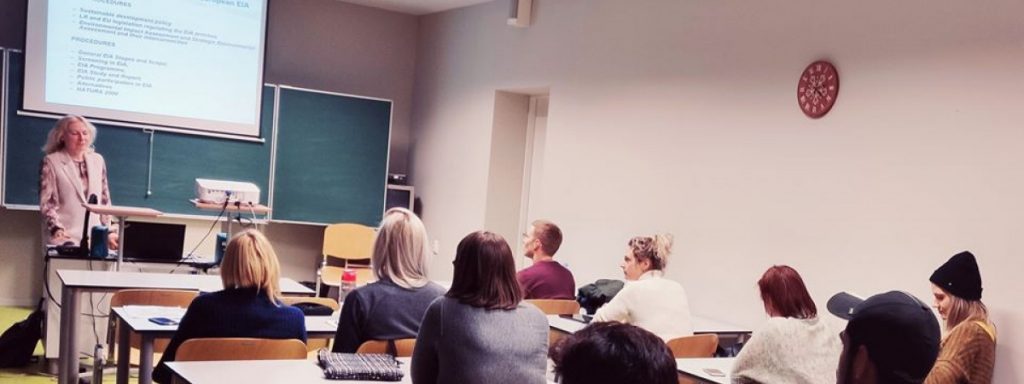
Three guest lecturers Olga Anne, Rasa Viederyte and Tatjana Paulauskiene from Klaipeda University (Lithuania), who are currently working in the strategic specialization field – “Natural Sciences” at Liepaja University (LiepU), on this Monday were presenting to LiepU programme’s director Lilita Ābele their fully developed study courses in Master’s study programme “Ecotechnologies”. Olga Anne has developed the study course – “Economic Activities’ Environmental Impact Assessment” (3 ECTS), Rasa Viederyte – “Industrial symbiosis and Clustering” (3 ECTS), but Tatjana Paulauskiene has developed the study course – “Environmental Technology” (3 ECTS).
Olga Anne is currently already giving lectures to students of LiepU Master study programme “Ecotechnologies”, while other two guest lecturers will be giving their lectures in newly developed study courses in spring semester of the study year 2020.
The guest lecturers have been also doing the scientific research work in strategic specialiazation area – “Natural Sciences”, they succefully have presented their joint report made together with Lilita Ābele about “Industrial symbiosis efficiency parameters in context of regional sustainable development” on the XVI International Youth Scientific and Environmental Forum of Baltic region countries “Ecobaltica” in Gdansk, Poland in October 7-9th.
Lilita Ābele explains “that authorities of the event expresses the wish to organize the forum “Ecobaltica” next year in Liepaja University. It would be a good opportunity and experience for LiepU students and lecturers of the study direction “Environmental protection” to participate in such an event.”
Now guest lecturers continue to work also on a joint article on “Industrial symbiosis and Circular economy”.
The guest lecturers’ activities are supported by the ESF funding project “Perfection of the Academic Staff of Liepaja University in the Areas of Strategic Specialization – Natural Sciences, Mathematics and Information Technologies, Art, Social Sciences, Commerce and Law” (No 8.2.2.0/18/A/021).
Wishing good luck to our guest lecturers in work with students and research activities!
